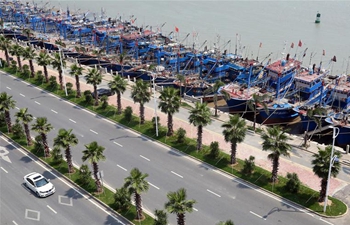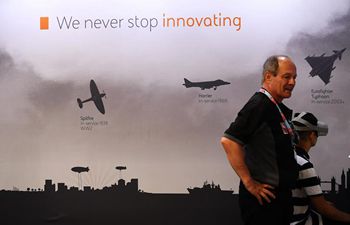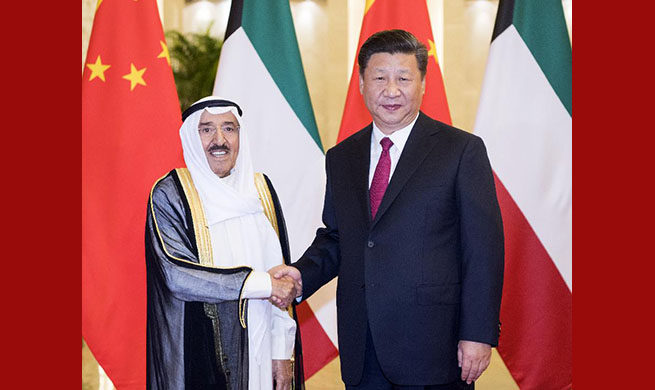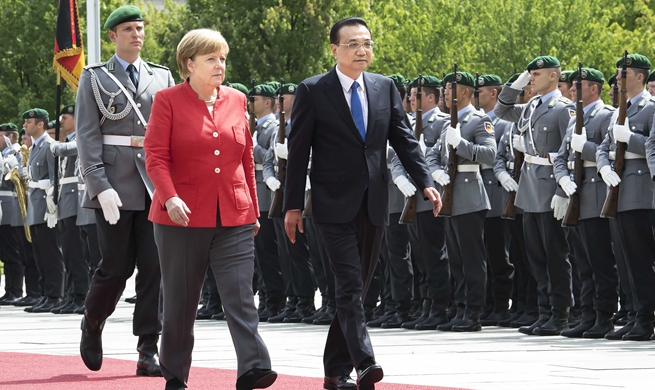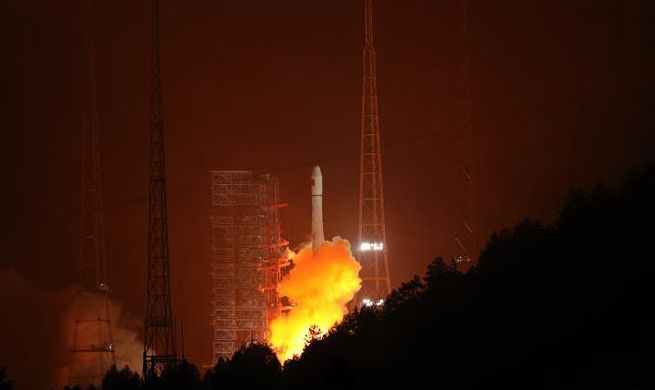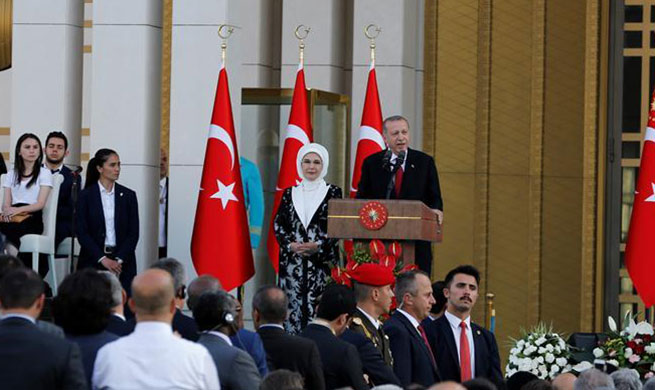UNITED NATIONS, July 9 (Xinhua) -- A well-known professor said Monday at a UN high-level meeting that the biggest obstacle to achieving fair societies is greed.
Jeffrey d. Sachs, professor and director of the Center for Sustainable Development at Columbia University, said that the 2030 Sustainable Development Goals (SDGs) are "this generation's only hope for creating peaceful, safe, fair and sustainable societies."
"We have to make them work," he said, but the biggest obstacle is greed.
Addressing the UN High-level Political Forum on Sustainable Development, which will take stock of progress on the SDGs and conclude on July 18, Sachs said that "there is enough in the world for everyone to live free of poverty and it won't require a big effort on the part of big countries to help poor ones."
But vested interests, including oil companies and the food industries, have been resisting. Presenting league tables produced by his team and the Sustainable Development Solutions Network, he said Sweden, at the top of the list, is closest to achieving the goals, and that Europe is "by far" the region closest to doing so. Moreover, the list of the top 10 countries closest to achieving the goals mirrors a complementary ranking of the world's happiest countries. It is literally the truth that sustainable development is the path to happiness, he said.
In contrast, the United States is 35th on the list of countries closest to achieving the goals and only 18 in the happiness rankings.
"Just trying to be rich does not make you happy," he said. Sustainable development that is balanced, fair, inclusive and environmentally sustainable is what produces happiness, he added.
The happiest countries are the ones that tax themselves the most, he added, noting that Swedes think it is a good thing to pay half their national income to quality education and health care.
The United States, on the other hand, is all about tax cuts for rich people. "To achieve sustainable development, you have to pay for it," he said, adding that tax cuts for the rich don't pay for sustainable development.
Appealing to everyone to mobilize resources to achieve sustainable development, he said there must be major transformation in how countries work.
Most important is quality education, followed by universal access to health care, clean energy ("without which the planet will be wrecked"), sustainable land and food, smarter cities with decent infrastructure, and proper use of digital technologies. "We have to take care of ourselves. Otherwise we will destroy ourselves," he said.
Emphasizing that rich countries could easily finance global sustainable development from their own resources, he said the world's 2,208 billionaires -- "you can look them up on Forbes magazine online" -- could, by paying 1 percent of their net worth each year, put every child in the world in school or guarantee access to health care for everyone.
The rich world has many sources of revenue and the United Nations should go after that revenue, he said, proposing a levy on high net worth individuals and taxing the 20 trillion U.S. dollars held in offshore accounts in a "tax haven archipelago" designed by the United States, the United Kingdom and others.
Taxes should also be levied on the world's five biggest technology companies, worth a combined 3.5 trillion dollars and enjoying a natural monopoly, as well as on global financial transactions.
He went on to call for wider implementation of carbon taxes and a crackdown on rampant tax evasions. The aim is to ensure that every child has a future. Otherwise, he said, "we don't have a future."
The UN High-level Political Forum on Sustainable Development is the main UN platform on sustainable development and it has a central role in the follow-up and review of the 2030 Agenda for Sustainable Development Goals at the global level.




